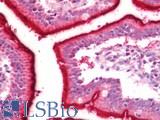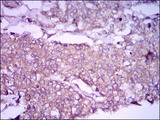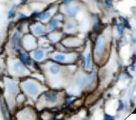Login
Registration enables users to use special features of this website, such as past
order histories, retained contact details for faster checkout, review submissions, and special promotions.
order histories, retained contact details for faster checkout, review submissions, and special promotions.
Forgot password?
Registration enables users to use special features of this website, such as past
order histories, retained contact details for faster checkout, review submissions, and special promotions.
order histories, retained contact details for faster checkout, review submissions, and special promotions.
Quick Order
Products
Antibodies
ELISA and Assay Kits
Research Areas
Infectious Disease
Resources
Purchasing
Reference Material
Contact Us
Location
Corporate Headquarters
Vector Laboratories, Inc.
6737 Mowry Ave
Newark, CA 94560
United States
Telephone Numbers
Customer Service: (800) 227-6666 / (650) 697-3600
Contact Us
Additional Contact Details
Login
Registration enables users to use special features of this website, such as past
order histories, retained contact details for faster checkout, review submissions, and special promotions.
order histories, retained contact details for faster checkout, review submissions, and special promotions.
Forgot password?
Registration enables users to use special features of this website, such as past
order histories, retained contact details for faster checkout, review submissions, and special promotions.
order histories, retained contact details for faster checkout, review submissions, and special promotions.
Quick Order
| Catalog Number | Size | Price |
|---|---|---|
| LS-C390202-20 | 20 µg (0.2 mg/ml) | $371 |
| LS-C390202-100 | 100 µg (0.2 mg/ml) | $574 |
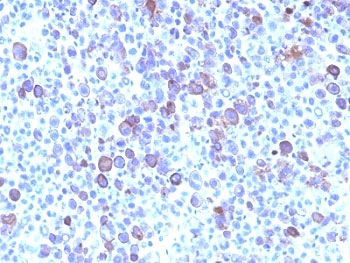
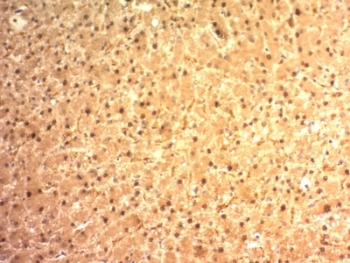


1 of 2
2 of 2
Monoclonal Mouse anti‑Human GPC3 / Glypican 3 Antibody (clone SPM595, aa511‑580, IHC, IF) LS‑C390202
Monoclonal Mouse anti‑Human GPC3 / Glypican 3 Antibody (clone SPM595, aa511‑580, IHC, IF) LS‑C390202
Antibody:
GPC3 / Glypican 3 Mouse anti-Human Monoclonal (aa511-580) (SPM595) Antibody
Application:
IHC, IHC-P, IF, Flo
Reactivity:
Human
Format:
Unconjugated, Unmodified
Other formats:
Toll Free North America
 (800) 227-6666
(800) 227-6666
For Research Use Only
Overview
Antibody:
GPC3 / Glypican 3 Mouse anti-Human Monoclonal (aa511-580) (SPM595) Antibody
Application:
IHC, IHC-P, IF, Flo
Reactivity:
Human
Format:
Unconjugated, Unmodified
Other formats:
Specifications
Description
Glypican 3 antibody LS-C390202 is an unconjugated mouse monoclonal antibody to human Glypican 3 (GPC3) (aa511-580). Validated for Flow, IF and IHC.
Target
Human GPC3 / Glypican 3
Synonyms
GPC3 | DGSX | Glypican proteoglycan 3 | Glypican 3 | Glypican-3 | GTR2-2 | Intestinal protein OCI-5 | SGB | SGBS1 | SGBS | MXR7 | OCI-5 | OCI5 | SDYS | Secreted glypican-3 | Heparan sulphate proteoglycan
Host
Mouse
Reactivity
Human
(tested or 100% immunogen sequence identity)
Clonality
IgG1,k
Monoclonal
Clone
SPM595
Conjugations
Unconjugated
Purification
Protein G purified
Modifications
Unmodified.
Also available Azide-free, BSA-free.
Immunogen
Recombinant fragment containing amino acids 511-580 from the human protein.
Epitope
aa511-580
Specificity
Human GPC3 / Glypican 3
Applications
- IHC
- IHC - Paraffin (0.5 - 1 µg/ml)
- Immunofluorescence (0.5 - 1 µg/ml)
- Flow Cytometry (0.5 - 1 µg/10E6 cells)
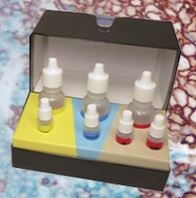
|
Performing IHC? See our complete line of Immunohistochemistry Reagents including antigen retrieval solutions, blocking agents
ABC Detection Kits and polymers, biotinylated secondary antibodies, substrates and more.
|
Usage
Glypican-3 (GPC3) is a glycosylphospatidyl inositol-anchored membrane protein, which may also be found in a secreted form. Anti-GPC3 has been identified as a useful tumor marker for the diagnosis of hepatocellular carcinoma (HCC), hepatoblastoma, melanoma, testicular germ cell tumors, and Wilm s tumor. In patients with HCC, GPC3 is overexpressed in neoplastic liver tissue and elevated in serum, but is undetectable in normal liver, benign liver, and the serum of healthy donors. GPC3 expression is also found to be higher in HCC liver tissue than in cirrhotic liver or liver with focal lesions such as dysplastic nodules and areas of hepatic adenoma (HA) with malignant transformation. In the context of testicular germ cell tumors, GPC3 expression is up regulated in certain histologic subtypes, specifically yolk sac tumors and choriocarcinoma. A high level of GPC3 expression is also found in some types of embryonal tumors, such as Wilm s tumor and hepatoblastoma, with a low or undetectable expression in normal adjacent tissue. In patients with thyroid cancer, expression of GPC3 is dramatically enhanced in certain types of cancers: 100% in follicular carcinoma and 70% in papillary carcinoma. Expression of GPC3 in follicular carcinoma is significantly higher than that of follicular adenoma. In contrast, GPC3 is not expressed in anaplastic carcinoma. Optimal dilution of the Glypican-3 antibody should be determined by the researcher. Staining of formalin-fixed tissues requires boiling tissue sections in 10mM Tris with 1mM EDTA, pH 9.0, for 10-20 min followed by cooling at RT for 20 min.
Presentation
1X PBS, 0.1 mg/ml BSA, 0.05% sodium azide
Storage
Store at 2°C to 8°C.
Restrictions
For research use only. Intended for use by laboratory professionals.
About GPC3 / Glypican 3
Publications (0)
Customer Reviews (0)
Featured Products
Species:
Human
Applications:
IHC, IHC - Paraffin, Western blot
Species:
Human
Applications:
IHC, IHC - Paraffin, Immunofluorescence, Western blot, Flow Cytometry, ELISA
Species:
Human
Applications:
IHC, IHC - Paraffin, IHC - Frozen
Species:
Human
Applications:
ICC, Immunofluorescence, ELISA
Request SDS/MSDS
To request an SDS/MSDS form for this product, please contact our Technical Support department at:
Technical.Support@LSBio.com
Requested From: United States
Date Requested: 4/16/2025
Date Requested: 4/16/2025

